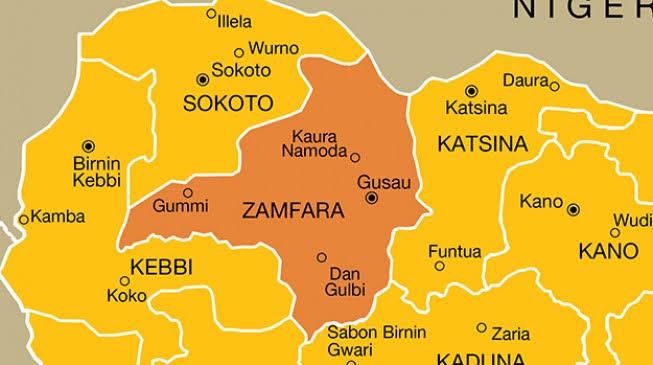The Federal Government has officially lifted the ban on mining exploration in Zamfara State, signaling a significant shift in its approach to economic development and security in the region.
This decision follows a comprehensive review of the security situation across the state, which has long grappled with issues of banditry and instability.
In a statement issued on Sunday by Segun Tomori, the Special Assistant on Media to the Minister of Solid Minerals, Dele Alake, the government announced that the prohibition on mining activities, which had been in place since 2019, has been rescinded.
This comes after an assessment by President Bola Tinubu and the National Security Adviser, who determined that the security environment in Zamfara has improved sufficiently to allow for the resumption of mining operations.
The ban on mining in Zamfara was first imposed in 2019 under former President Muhammadu Buhari’s administration.
The measure was aimed at curbing the escalating insecurity in the state, as mining activities were believed to be fueling banditry and violent crime. Two years later, in 2021, the government declared Zamfara a “no-fly zone,” further restricting movement and economic activities in an effort to combat the crisis.
However, the latest evaluation by security agencies has led to the conclusion that conditions in the state have improved, prompting the Federal Government to reverse its earlier stance.
Dele Alake emphasized the economic potential of Zamfara, describing the state as a treasure trove of mineral resources, including gold, lithium, and copper. The resumption of mining activities is expected to not only boost the local economy but also contribute significantly to Nigeria’s overall revenue generation.
The statement read, “The Federal Government has lifted the ban on mining exploration activities in Zamfara State, citing significant improvements in the security situation across the state.
“This decision underscores the government’s commitment to revitalizing economic activities in a state endowed with vast mineral wealth. The proper harnessing of these resources will provide jobs, stimulate local businesses, and increase the country’s foreign exchange earnings.”
Industry stakeholders and experts have welcomed the decision, describing it as a long-overdue step that could unlock the state’s economic potential.
Many believe that Zamfara, with its abundant gold and other valuable minerals, could emerge as a key player in Nigeria’s mining sector if the industry is properly regulated and security challenges remain under control.
Nevertheless, concerns linger about the security implications of resuming mining in the state. Critics argue that unless strict monitoring and regulatory measures are implemented, mining activities could once again attract criminal elements, undermining the progress made.
In response, Alake assured that the Federal Government has devised a robust framework to ensure that mining in Zamfara is conducted safely and transparently. He stated that collaboration with local communities, security agencies, and stakeholders in the mining sector would be a cornerstone of the new approach.
The lifting of the ban represents a crucial test of Nigeria’s ability to balance economic development with security concerns, especially in resource-rich regions like Zamfara. As the state prepares to welcome mining companies back, the hope is that this move will not only rejuvenate its economy but also sustain the hard-won stability that made it possible.



